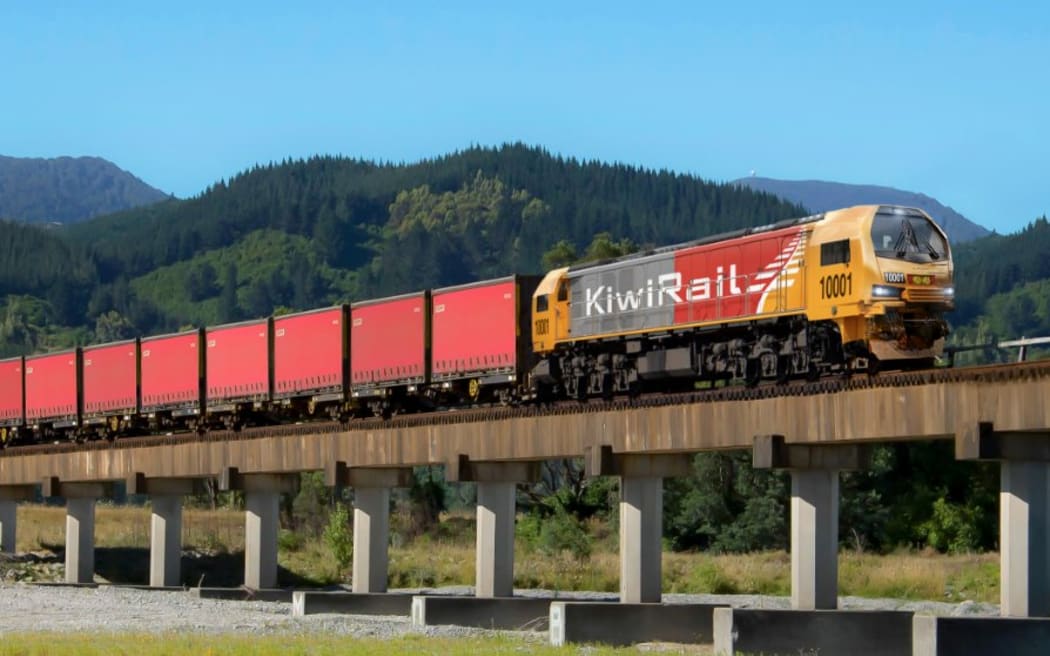Rail in New Zealand looks to be following a dead-end track with no firm plans to replace the Cook Strait ferries, and a government preference for roads.

Photo: Supplied
In the 16 years since it was bought by the government for $690 million, KiwiRail has had several overhauls and turnaround plans, worth billions of dollars.
Its ambitions as a successful, profitable operator of tourism, freight and ferries have often been derailed by disasters from earthquakes to cyclones, mine explosions and the collapse of key industries like coal mining.
The latest goal for KiwiRail under the multi-billion dollar 2021 New Zealand Rail Plan was to make its "above rail" business of trains and ferries commercially viable by 2025 and able to fund future investments, but that was contingent on significant ongoing government investment in the network, the "below rail" side of the business.
"It gave KiwiRail certainty for the first time that it would get specific allotments every year for three years and then having a wider 10-year outlook," BusinessDesk infrastructure editor Oliver Lewis tells The Detail.
But the new government is taking a different approach to the state owned enterprise, making it clear that road users would not be cross-subsidising rail through the National Land Transport Programme.
"That results in a massive reduction in the possible range of funds that KiwiRail can access in future years. And so there's a lot of concern from the unions and others, (including) rail users, that this might result in more underutilised lines getting closed down or mothballed," says Lewis.
Add to that the finance minister Nicola Willis' bombshell decision not to pump another billion dollars into the Interislander mega ferries, sinking the project and leaving a question mark over KiwiRail's future as a shipping operator.
"I get the impression that government and officials are asking themselves this very question," New Zealand Herald's Wellington reporter Georgina Campbell says.
Campbell has been following the dramas of the Interislander for several years and says she felt relief that KiwiRail was pursuing a plan to replace the ageing ferries, especially after the terrifying Kaitaki incident last year when it drifted towards rocks, endangering the lives of hundreds of passengers on board.
"That really scared me and so I always felt that at least there's a plan to replace these unreliable ships. I feel like I've been brought back to that space, I'm nervous. The government says they're working on a plan but technically there is no plan B yet," she says.
Willis will not commit to having replacement ships on the water by 2026, as was the plan for the first mega ferry, but Campbell sees that as a political risk.
"What happens if there is another Kaitaki incident in 2026 and they haven't got new ships and this time the ship doesn't narrowly avoid disaster? There are a few things up in the air, but in my view I think there needs to be a plan in place and implemented by 2026."
She says journalists and the public are in an information vacuum over the government's plans and the details of its decision not to fund the mega ferries. The "breadcrumbs" of information she has received show that a Ministry of Transport briefing floated the possibility of KiwiRail exiting the ferry service but more should be known about its future by mid-year.
Meanwhile, Lewis thinks the more likely option for KiwiRail is a retrenchment of the rail network with a focus on the main centres and the golden triangle of Auckland, Hamilton and Tauranga. But he's keen to know more about New Zealand First's stance on KiwiRail and future funding plans.
"I think there's a signal from this government that they don't share the same enthusiasm as the previous government for investing a lot of money into rail which is slightly ironic because Shane Jones and Winston Peters were ginormous boosters of KiwiRail and secured a lot of funding for it when they were in the previous coalition.
"I'm not sure where their thinking is, why they've gone so quiet on rail in recent months."
Check out how to listen to and follow The Detail here.
You can also stay up-to-date by liking us on Facebook or following us on Twitter.


